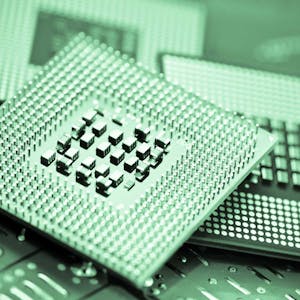Developing FPGA-accelerated cloud applications with SDAccel: Practice
About this Course
This course is for anyone passionate about learning how to develop FPGA-accelerated applications with SDAccel! The more general purpose you are, the more flexible you are and the more kinds of programs and algorithms you can execute on your underlying computing infrastructure. All of this is terrific, but there is no free food and this is happening, quite often, by losing in efficiency. This course will present several scenarios where the workloads require more performance than can be obtained even by using the fastest CPUs. This scenario is turning cloud and data center architectures toward accelerated computing. Within this course, we are going to show you how to gain benefits by using Xilinx SDAccel to program Amazon EC2 F1 instances. We are going to do this through a working example of an algorithm used in computational biology. The huge amount of data the algorithms need to process and their complexity raised the problem of increasing the amount of computational power needed to perform the computation. In this scenario, hardware accelerators revealed to be effective in achieving a speed-up in the computation while, at the same time, saving power consumption. Among the algorithms used in computational biology, the Smith-Waterman algorithm is a dynamic programming algorithm, guaranteed to find the optimal local alignment between two strings that could be nucleotides or proteins. In the following classes, we present an analysis and successive FPGA-based hardware acceleration of the Smith-Waterman algorithm used to perform pairwise alignment of DNA sequences. Within this context, this course is focusing on distributed, heterogeneous cloud infrastructures, providing you details on how to use Xilinx SDAccel, through working examples, to bring your solutions to life by using the Amazon EC2 F1 instances.Created by: Politecnico di Milano

Related Online Courses
Course 2 of Statistical Thermodynamics presents an introduction to quantum mechanics at a level appropriate for those with mechanical or aerospace engineering backgrounds. Using a postulatory... more
This Specialization aims to make branding concepts accessible to every learner and to teach them to analyze and apply all the relevant concepts, using the broad and diverse toolkit of branding. It... more
This is a self-paced lab that takes place in the Google Cloud console. In this lab, you will learn more about the Outcomes and Functions of the Chronicle security solution.Created by: Google Cloud more
This Specialisation provides rigorous training in econometric methods, via the exploration of theoretical concepts, real-data examples and the application of econometric techniques to industry... more
By the end of this guided project, you will be fluent in creating Program Communications artefacts for the Identification/Planning Phase for diverse programs. You will utilise a logical diagramming... more








